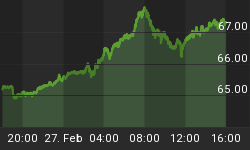I know it's bad form to express sympathy for the people running the world's central banks. But come on, they're human beings in an impossible spot with no idea how to escape. The pain they feel is both intense and legitimate, and we should respond with at least a bit of empathy.
Just kidding. It's schadenfreude all the way down.
The Fed in particular has painted itself into a very tight corner with its never-ending threats to raise interest rates while the rest of the world is still cutting. Millions of words have been written about its reasons for behaving this way and the difficulties of the road it has chosen. But for now it's enough to note that Yellen et al are still at it, dropping hints that come October rates are really, seriously going up because the US is a healthy, well-run country whose borrowers should borrow more and whose voters should reward incumbent politicians with four more years!
But the rest of the world is not cooperating. Deutsche Bank, of course, has everyone spooked and speculating not about whether it needs saving but how and when this will happen. Here's one creative take from MarketWatch:
Deutsche Bank needs a bail-in — here's how it could be done
Deutsche Bank needs to substantially restructure its business activities and balance sheet, both of which will take time and capital, neither of which the bank has.
After the confirmation that hedge funds have started to reduce their capital and trading with Deutsche Bank, the German bank's position is now perilous.
Deutsche Bank's current equity at book value is 61.9 billion euros ($69.3 billion) but its market capitalization is only 15.8 billion euros. Its total assets are 114.3 times its market capitalization, and its price-to-book ratio is 25.5%. The only peers with ratios that bad are Italian banks, which have dubious solvency and very high levels of non-performing loans. To get from the 2.68% tier one capital ratio shown above to the 5% leverage ratio many consider the minimum acceptable level requires 40.1 billion euros of new equity.
Deutsche Bank's CEO has stated that 2016 will be a peak year for restructuring, meaning investors should expect a loss for this year. The fine being negotiated with the U.S. Department of Justice, further fines for new scandals, the difficulties of operating in a negative interest-rate environment and the potential for another European or global downturn mean there is a material risk of losses continuing in future years.
A bailout or bail-in is needed
Taking into account the lack of capital and the very unlikely prospects for an equity raising or asset sales to be sufficient, Deutsche Bank needs either a bailout or a bail-in. A bailout by the German government is legally possible, given the gaps in the regulation that can be exploited. The key question is whether the German government would be willing to do so. In recent years, Chancellor Angela Merkel and her key ministers have consistently denounced the possibility of the Italian government providing a bailout to Italian banks. In recent months, they have been adamant they won't bail out Deutsche Bank.Bail-in mechanics
The recently introduced European regulations lay out a framework for how a bail-in would work. Equity, additional tier 1 securities (Coco's or hybrids) and subordinated debt can be written off completely if the bank is declared non-viable. Senior debt, particularly that provided by large institutions, can also be converted to equity to lift reserves. By undertaking a combination of those two processes, Deutsche Bank's undercapitalization could be quickly rectified.For every 100 euros they are currently owed, bailed-in senior debt holders would receive 36.90 euros in new senior debt as well as material value in new equity. To assist the transition, the regulators and Deutsche Bank should work together to see that those who receive new equity can be offered a transparent and orderly means to sell down those shares. While Deutsche Bank could theoretically just restart trading after the new shares were issued, relisting without an opportunity for new shareholders to sell down to more natural equity owners could be substantially disorderly and may result in much greater losses in value and confidence in banks than would otherwise be the case.
Note that in this hypothetical bail-in shareholders and owners of many bonds lose everything, which would send owners of other banks' stocks and bonds running for the exits. Perhaps to get out in front of Deutsche Bank's coming Big Announcement, capital outflows from Italian and Spanish banks have accelerated. See Capital Flight in Italy, Spain Intensifies: Italy Target2 Balance Hits Record Negative, Spain Close Behind and Stealth Bailout of 2 Franken-Banks Now Happening in Spain.
These banks and many more in Europe and elsewhere need massive infusions of liquidity, some of which will have to come from the US since that's where so much of the money is.
Put another way, to avoid wide-spread banking collapse, a coordinated global currency devaluation will be necessary. For the US to tighten while everyone else is in full-on panic mode would make a chaotic situation even more unmanageable. Fed governors know this, hence their (no doubt) sleepless nights and public dithering.















